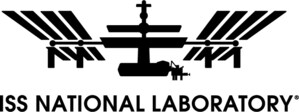
Northrop Grumman's 21st mission to the orbiting laboratory set to launch with more than 20
ISS National Lab-sponsored payloads onboard
CAPE CANAVERAL, Fla., Aug. 2, 2024 /PRNewswire/ -- Novel biomedical investigations, technology demonstrations, physical science projects, and much more are slated to launch to the International Space Station (ISS) this weekend. Northrop Grumman's 21st Commercial Resupply Services (NG-21) mission to the orbiting laboratory, contracted by NASA, will carry more than 900 pounds of critical research and supplies, including more than 20 payloads sponsored by the ISS National Laboratory®. The mission will launch from Cape Canaveral Space Force Station no earlier than Saturday, August 3, 2024, at 11:28 a.m. EDT.
Here is a look at some of the ISS National Lab-sponsored investigations launching on NG-21 that intend to bring value to humanity and enable commerce in low Earth orbit:
- Three of these investigations are also funded by the U.S. National Science Foundation (NSF). They include:
-
- A project from Florida International University will study the behavior of tiny, engineered particles microscopically dispersed in a liquid to form an active colloid. The team will explore the potential of these particles to extract energy from their surroundings and use it for self-propulsion. Results could inform a variety of applications, from targeted drug delivery to disease screening, water desalination, and photothermal therapies to treat cancer and other diseases.
- An investigation from Northeastern University will study the physics of tiny particles of different sizes dispersed in a fluid that stick together to form a colloidal gel. Understanding the behavior of these particles is important across several industries, including food, medicine, construction, and electronics.
- A project from Notre Dame will examine the physics of bubble formation in microgravity to develop highly sensitive biosensors for detecting trace substances in liquids. The team will use light to generate bubbles that can collect, concentrate, and deposit trace amounts of substances in a solution onto a surface for collection and analysis. This project builds on the team's prior ISS National Lab-sponsored research, and results could lead to new sensor technology for detecting early cancer markers in blood.
- Two projects are focused on the in-space production of stem cells, which can mature into different types of tissues to improve patient care on Earth. One is an investigation from Cedars-Sinai Medical Center that will test whether human induced pluripotent stem cells (iSPCs) grow and divide faster in microgravity. Results could help establish methods for future large-scale in-space biomanufacturing of stem cell-derived products, which could lead to new treatments for heart disease, neurodegenerative diseases, and many other conditions. For the second project, BioServe aims to develop a novel stem cell expansion bioreactor and protocols for its use in space.
- Sphere Entertainment Co. is in phase two of a technology research experiment testing Big Sky—an ultra-high-resolution, single-sensor camera—on the space station. In the first phase, which launched in November 2022, a commercial off-the-shelf camera collected baseline information while astronauts tested the camera's use in space. The second phase will see Big Sky—developed by Sphere Entertainment to capture content for Sphere, the next-generation entertainment medium in Las Vegas—tested inside the ISS. Big Sky features the world's largest image sensor, as well as the world's sharpest cinematic lenses, and captures detailed, large-format images in a way never before possible. This mission will help validate proper functioning, operations, and video downlink of Big Sky in microgravity conditions to help inform future research.
These are just a few of the investigations launching on NG-21. To learn about other ISS National Lab-sponsored projects on this mission and view a webinar recording with some of the principal investigators, please visit our launch page.
To download a high-resolution image for this release, click here.
About the International Space Station (ISS) National Laboratory:
The International Space Station (ISS) is a one-of-a-kind laboratory that enables research and technology development not possible on Earth. As a public service enterprise, the ISS National Laboratory® allows researchers to leverage this multiuser facility to improve quality of life on Earth, mature space-based business models, advance science literacy in the future workforce, and expand a sustainable and scalable market in low Earth orbit. Through this orbiting national laboratory, research resources on the ISS are available to support non-NASA science, technology, and education initiatives from U.S. government agencies, academic institutions, and the private sector. The Center for the Advancement of Science in Space™ (CASIS™) manages the ISS National Lab, under Cooperative Agreement with NASA, facilitating access to its permanent microgravity research environment, a powerful vantage point in low Earth orbit, and the extreme and varied conditions of space. To learn more about the ISS National Lab, visit our website.
As a 501(c)(3) nonprofit organization, CASIS accepts corporate and individual donations to help advance science in space for the benefit of humanity. For more information, visit our donations page.
Media Contact: |
Patrick O'Neill |
904-806-0035 |
|
|
6905 N. Wickham Rd., Suite 500, Melbourne, FL 32940 • 321.253.5101 • www.ISSNationalLab.org |
SOURCE International Space Station National Lab







Share this article